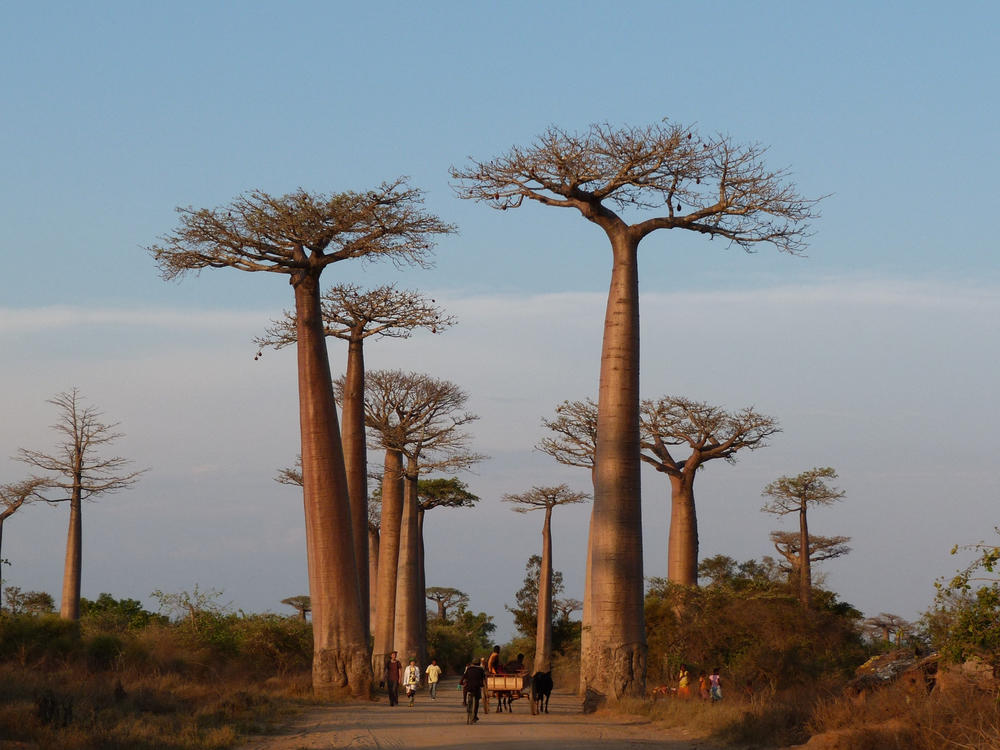Section Branding
Header Content
Scientists reveal mysterious origin of Baobab trees, Rafiki's home in 'The Lion King'
Primary Content
Baobabs are sometimes called the "tree of life." They have thick trunks, a crown of branches and flowers that only open at twilight. Technically a succulent, the tree served as the inspiration for Rafiki's home in the Lion King.
Scientists recognize eight distinct baobab species, adapted for dry climates and providing food, water and shelter to entire ecosystems. The trees can also figure heavily into the diets and folklore of the people around them.
However, theories about their geographic origin was divided among three places: the savannas of sub-Saharan Africa, the Kimberley region of western Australia and the dry forests of Madagascar.
To solve this mystery, a global research team led by scientists at the Wuhan Botanical Garden at the Chinese Academy of Sciences examined high-quality genomic data from all eight baobab species. Advances in genetics have made this type of sequencing faster and cheaper.
Combined with ecological analysis, the team pinpointed the most probable origin point: Madagascar. They believe that oceanic currents later spread the baobab fruit to Africa and Australia, where the plant adapted to the local environment and gave rise to entirely new species.
The team published their results in the journal Nature this week.
Wan Jun-Nan, first author on the study, has loved baobabs since reading about them in "The Little Prince." He recalled his first time seeing a baobab in Madagascar. "When I touched the bark of the baobab, I decided to know the evolutionary history of these special trees," he said.
The future of the trees is a question mark for now.
Three of the Malagasy baobab species are threatened with extinction. Adansonia perrieri is classified as critically endangered, while Adansonia grandidieri and Adansonia suarezensis are classified as endangered.
Deforestation and rising sea levels limit the baobabs range. The habitats of baobab pollinators like fruit bats and hawks are under threat too. Ultimately, Wan hopes ecologists take the study's genetic findings and apply those insights to conservation plans.
Have another origin story you want us to cover? Email us at shortwave@npr.org.
Listen to Short Wave on Spotify, Apple Podcasts and Google Podcasts.
Listen to every episode of Short Wave sponsor-free and support our work at NPR by signing up for Short Wave+ at plus.npr.org/shortwave.
Today's episode was produced by Megan Lim and Rachel Carlson. It was edited by Rebecca Ramirez and Christopher Intagliata. Rachel and Rebecca checked the facts alongside Emily Kwong, Maria Godoy and Regina Barber. The audio engineers were Neil Tevault and Patrick Murray.

